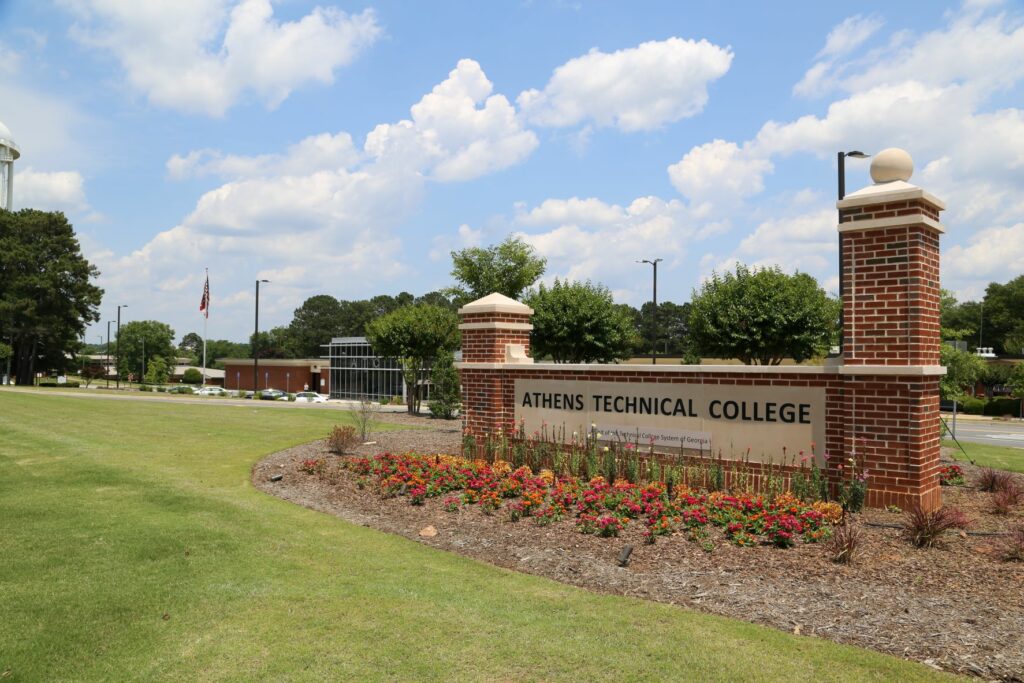Hotel Restaurant and Tourism Management
Degree Options:
Campus Location:
AthensDivision
Business, Industry & TechnologyGraduates from the program go on to work at places such as luxury hotels, restaurants, resorts, country clubs, convention and visitors’ bureaus, national parks, entertainment centers, wedding venues, airline carriers or open their own business. Some go on and finish a more advanced degree at a four-year institution.
As a manager for the Hotel, Restaurant and Tourism Industry, individuals work to ensure that the operational components are functioning properly to maximize daily profitability of the business. Managers must be able to make quick decisions, analyze and solve problems, provide daily, weekly, and monthly reports, and provide quality service to colleagues, employees and guests. The Hotel, Restaurant, and Tourism Management Program here at Athens Technical College will prepare students so they will be able excel in the industry as managers. Lodging managers, typically the general manager and assistant managers, make decisions that affect the general operations of the hotel, including setting room rates, establishing credit policy, and having ultimate responsibility for resolving problems.
The Restaurant and Food Service Industry
Whether a fine-dining, casual-dining, quick service, or buffet styled establishment, Food Service Managers are responsible for the daily operations of restaurants and other establishments that prepare and serve meals and beverages to guest. Besides coordinating activities among various departments such as the kitchen, dining room, and banquet operations, food service managers ensure that internal (employees) and external guests are satisfied with their experience.
Managers are also responsible for Front-of-House (FOH) and Back-of-House (BOH) duties. BOH duties may include working a food station in the kitchen, ordering food inventories, and meal prep for various shifts. FOH duties may include ensuring food makes it to table in the appropriate amount of time, ensuring that tables are being cleaned and seated properly, and performing table touches to ensure guests are having a great experience.
Restaurant and food service industry managers also perform Administrative duties such as shift reports and scheduling, as well as Human Resources functions such as hiring and training. There are other health and safety standards and legal requirements that managers must adhere to and ensure are being followed as operational components of the business.
Hotel and Lodging Industry
The industry includes all types of lodging such as luxurious five-star hotels, destination resorts, budget motels, hostels and recreational vehicle parks. While many simply provide a place to spend the night, some cater to extended-stays, all providing various forms of food services, recreational activities, and event planning options.
Hotels and motels comprise the majority of establishments in this industry and are generally classified as offering either full-service or limited service. Managers at full service properties can expect to oversee areas such as food and beverage services, laundry and valet services, retail shops, swimming pools, beauty salons, fitness centers and/or health spas.
The larger hotels often have banquet rooms, exhibit halls, and spacious ballrooms to accommodate conventions, business meetings, wedding receptions, and other social gatherings. Conventions and business meetings are major sources of revenue for these properties. Some commercial hotels are business meetings that are major sources of revenue for these properties. Some commercial hotels are known as conference hotels – fully self-contained entities specifically designed for large-scale meetings.
Hotel and lodging industry managers also perform Administrative duties such as shift reports and scheduling, as well as Human Resources functions such as hiring and training. There are other health and safety standards and legal requirements that managers must adhere to and ensure are being followed as operational components of the business.
Travel and Tourism Management
Planning a weekend getaway by car, school tours at a museum, flying overseas to see the one of the 7 Wonders of the World, or taking a 7-day cruise, this industry has endless opportunities to have enjoyable experiences while seeing the world. Travel and tourism is all about final destinations and how to navigate people to their desired locations.
Travel and Tourism Managers can work in establishments that are end destinations like National Parks as Tour Operators, become Entertainment Managers on a cruise line, or work at a city’s Convention & Visitor’s Bureau as a Sales Manager. This area requires a lot of detail to mapping and planning travel schedules as well as providing events for individuals and groups to enhance their destination experiences.
Travel and tourism industry managers also perform Administrative duties such as seasonal reports and event planning, as well as Human Resources Functions such as hiring and training. There are other health and safety standards and legal requirements that managers must adhere to and ensure are being followed as operational components of the business.
Specific Facility, Tools Or Educational Tools Available
HRTM program students are encouraged to work in the industry to enhance classroom learning through application of knowledge. There are also opportunities where scholars plan/host events, live-work and externship opportunities.
Featured Courses
HRTM 1150- Event planning / HRTM 1210- Hospitality Law HRTM / 1160- Food & Beverage Management
Additional Details
Class Times Offered:
Daytime
Program Contact
Christina Wolfe
Dean - Business, Industry & Technology

